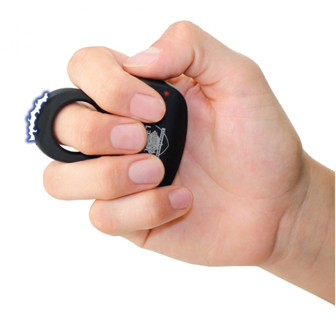Understanding Stress: Types, Effects, and Strategies for Management
 Stress has become a common companion in the lives of millions of people around the world. From tight work deadlines and financial burdens to family issues and global uncertainties, stress seems inescapable. Yet, while it's a natural and sometimes necessary part of life, chronic or unmanaged stress can wreak havoc on both mental and physical health. Understanding the different types of stress, how they affect the body and mind, and most importantly, how to manage them effectively, is key to leading a balanced and healthy life.
Stress has become a common companion in the lives of millions of people around the world. From tight work deadlines and financial burdens to family issues and global uncertainties, stress seems inescapable. Yet, while it's a natural and sometimes necessary part of life, chronic or unmanaged stress can wreak havoc on both mental and physical health. Understanding the different types of stress, how they affect the body and mind, and most importantly, how to manage them effectively, is key to leading a balanced and healthy life.
What is Stress?
At its core, stress is the body's response to any demand or challenge. When we encounter a perceived threat—whether it's a real physical danger or a psychological pressure—our brain activates a "fight or flight" response. This leads to the release of hormones like adrenaline and cortisol that help us respond quickly to the situation.
Stress isn’t inherently bad. In short bursts, it can boost motivation, enhance performance, and even save your life in dangerous situations. The real problem arises when stress becomes a chronic condition.
Types of Stress
Not all stress is the same. Understanding the various forms can help you better recognize and address them:
1. Acute Stress
This is the most common and immediate form of stress. It’s short-term and usually occurs in response to a specific event or challenge—like being stuck in traffic, giving a presentation, or getting into an argument.
Symptoms:
-
Headaches
-
Muscle tension
-
Irritability
-
Increased heart rate
While it’s typically not harmful, frequent episodes of acute stress can pile up and lead to more severe health issues if not addressed.
2. Episodic Acute Stress
When acute stress becomes a regular part of your life, it’s known as episodic acute stress. People who are always rushed, anxious, or angry often fall into this category.
Symptoms:
-
Persistent worry
-
Sleep disturbances
-
Digestive problems
-
Tension headaches
If left unmanaged, episodic acute stress can lead to burnout or chronic stress.
3. Chronic Stress
This type of stress lingers over long periods—weeks, months, or even years. It often results from serious life problems such as poverty, a dysfunctional relationship, or an unsatisfying job.
Symptoms:
-
Fatigue
-
Insomnia
-
Depression or anxiety
-
Weakened immune system
-
Heart disease
Chronic stress is the most damaging to your health and must be managed proactively.
4. Traumatic Stress
This type of stress is triggered by a traumatic event such as abuse, a natural disaster, combat, or a serious accident. It can lead to Post-Traumatic Stress Disorder (PTSD), a severe mental health condition.
Symptoms:
-
Flashbacks
-
Nightmares
-
Emotional numbness
-
Hypervigilance
Professional help is often required to treat traumatic stress effectively.
Effects of Stress on Mental and Physical Health
Stress affects the entire body, influencing thoughts, feelings, and behaviors. Let’s break down its impact:
Mental Health Effects
-
Anxiety and Depression Chronic stress increases the risk of anxiety disorders and depression. Elevated cortisol levels can impair neurotransmitter function, leading to mood imbalances.
-
Cognitive Impairment High stress affects memory, attention span, and decision-making. You may notice increased forgetfulness, confusion, or trouble concentrating.
-
Emotional Exhaustion Ongoing stress leads to emotional fatigue, detachment, and feelings of hopelessness, particularly in high-responsibility roles like caregiving or leadership positions.
-
Sleep Disturbances Stress often interferes with sleep by increasing arousal levels, making it difficult to fall or stay asleep. Poor sleep further worsens mental resilience.
Physical Health Effects
-
Cardiovascular Issues Stress causes increased heart rate and blood pressure. Over time, this can lead to heart disease, hypertension, and stroke.
-
Weakened Immune System Chronic stress suppresses immune function, making the body more susceptible to infections and diseases.
-
Digestive Problems Stress affects the gut-brain axis, leading to indigestion, irritable bowel syndrome (IBS), or appetite changes.
-
Muscle Tension and Pain Persistent stress often results in muscle tightness, headaches, and chronic pain conditions like fibromyalgia.
-
Weight Gain or Loss Some individuals cope with stress by overeating, especially sugary or fatty foods, leading to weight gain. Others may lose their appetite, resulting in unhealthy weight loss.
How to Manage Stress Effectively
While stress is an unavoidable part of life, there are many tools and techniques that can help manage it effectively:
1. Identify the Source
The first step in managing stress is understanding where it's coming from. Keep a stress journal for a week or two and note:
-
What triggered your stress?
-
How you felt physically and emotionally?
-
How you responded?
-
What you did to feel better?
Patterns will begin to emerge, giving you insight into what you can change.
2. Adopt Healthy Lifestyle Habits
a. Exercise Regularly
Physical activity releases endorphins, which are natural stress relievers. Aim for at least 30 minutes of moderate exercise most days.
b. Eat a Balanced Diet
Nutrient-rich foods like leafy greens, fruits, lean proteins, and whole grains can stabilize your mood and energy.
c. Sleep Well
Lack of sleep exacerbates stress. Aim for 7-9 hours of quality sleep per night. Practice good sleep hygiene by reducing screen time and keeping a regular sleep schedule.
d. Avoid Unhealthy Coping Mechanisms
While it may be tempting to smoke, drink alcohol, or binge-eat during stressful times, these behaviors worsen stress in the long term.
3. Practice Mindfulness and Relaxation Techniques
Mindfulness helps ground you in the present moment and reduces the tendency to ruminate on stressors.
a. Meditation
Even 10 minutes of daily meditation can significantly lower stress. Apps like Headspace or Calm offer guided options.
b. Deep Breathing
Simple breathing exercises (like the 4-7-8 technique) help activate the parasympathetic nervous system and promote relaxation.
c. Progressive Muscle Relaxation
Tensing and then relaxing muscle groups one by one can reduce physical tension and mental stress.
4. Build a Support System
Don't go through stressful times alone. Talk to friends, family, or a mental health professional. Sometimes, simply voicing your thoughts helps put them in perspective.
-
Join support groups for shared experiences.
-
Seek counseling or therapy for chronic stress or traumatic stress.
-
Communicate boundaries with work, family, or social obligations to protect your energy.
5. Time Management Skills
Feeling overwhelmed is often a result of poor time management. Learn to:
-
Prioritize tasks using the Eisenhower Matrix
-
Break big projects into small, manageable steps
-
Use planners or apps to keep track of deadlines
-
Delegate tasks when possible
-
Learn to say no without guilt
6. Engage in Activities That Bring Joy
Regularly set aside time for hobbies and activities you love—reading, gardening, painting, cooking, or simply walking in nature. These breaks act as emotional rechargers.
7. Limit Exposure to Stress Triggers
While you can't eliminate all stressors, you can reduce exposure:
-
Turn off the news if it overwhelms you
-
Reduce social media if it causes comparison or anxiety
-
Create a calm environment at home or work with decluttering and soothing music
-
Avoid toxic relationships or set strong boundaries
8. Reframe Negative Thoughts
Cognitive Behavioral Therapy (CBT) teaches you to challenge unhelpful thoughts. Instead of saying, “I’ll never get this done,” try, “This is tough, but I’ll handle it step by step.”
9. Seek Professional Help When Needed
If stress is affecting your ability to function, it’s time to get help. Mental health professionals can provide therapy, coping tools, and in some cases, medication.
Final Thoughts
Stress is a universal human experience—nobody is immune to it. However, it doesn't have to control your life. The key lies in understanding the type of stress you're facing, recognizing its impact, and taking consistent, proactive steps to manage it.
By developing healthy coping strategies, prioritizing self-care, and reaching out for support when needed, you can navigate life’s challenges with greater resilience and peace. Remember, managing stress is not about eliminating it entirely, but about finding balance—and thriving despite the chaos.
Quick Tips Recap
- Identify your stress triggers
- Exercise regularly
- Eat and sleep well
- Practice mindfulness
- Build a support system
- Manage your time wisely
- Say “no” when needed
- Reframe negative thoughts
- Make time for joy
- Get professional help when overwhelmed
By taking a holistic approach to stress management, you’re investing in a healthier, happier future. Start today—your mind and body will thank you.
Company Info
Customer Service
Product Information
- TASER® and Stun Devices Regulations by State
- TASER® Safe Escape Product Replacement Guarantee
- TASER® Comparison Chart
- TASER® User Manuals
- TASER® Warranty Info
- Byrna Product Catalog
- PepperBall Manuals & Spec Sheets
- Pepper Spray Laws
- Air Gun Laws
- States that Restrict Automatic and Butterfly Knives
- Our Print Catalog



































































